KNOWLEDGE PAGE
The Knowledge Page is designed to provide a brief and easy overview of those certifications that you will run into when searching for green products.

Afrisco Certified Organic is an internationally accredited South African certifier which certifies farms, input producers and processing companies to organic standards in the ten southern SADC countries, for sale in southern Africa or for export to European, Swiss and north American markets. Afrisco has also developed organic standards for game production.

Appearing on over 14,000 products, the Australian Certified Organic logo is the most recognised organic certification mark in Australia. Accredited by the Australian Government companies using this logo are audited annually to ensure they comply with the strict environment, social and animal welfare requirements of the Australian Certified Organic Standard.
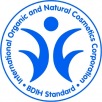
International Standard for natural and organic cosmetic products. Introduced firstly in Germany in 2000. Meanwhile more than 8.000 certified products worldwide. Founding member of COSMOS-standard with harmonized criteria for existing European standard setters. BDIH-Standard defines strict criteria for naturalness of ingredients and requires organic quality for specific ingredients.
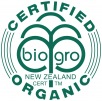
BioGro is New Zealand’s leading organic certifier. Buying products & services that carry our logo ensures that the highest organic standards have been met every step of the way. BioGro certified products have been produced without the routine use of synthetic pesticides, fertilisers and genetically modified ingredients, with a reduced effect on the environment, and animals have been treated humanely along the way.
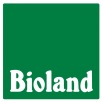
Bioland is the leading association for organic farming in Germany. About 5600 farmers, gardeners, beekeepers and winegrowers produce according to the Bioland standards. In addition about 1000 processors such as bakeries, dairies, butchers, restaurants and traders are also Bioland partners. Together they share common values that benefit people and environment.

Bio Suisse organizes and leads the development of the organic agriculture in Switzerland. The „bud“, the label of the Swiss organic famers and their products, guarantees compliance with the Bio Suisse standards and thus a very high organic production standard across the entire agricultural operation as well as the upstream and downstream sectors.
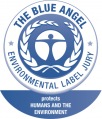
The Blue Angel guarantees that a product or service meets high standards when it comes to its environmental, health and performance characteristics. The Blue Angel is supported by the following four institutions: The Environmental Label Jury , the German Federal Ministry for the Environment, Nature Conservation, Building and Nuclear Safety, the Federal Environmental Agency and the RAL gGmbH.
The bluesign® system is the solution for a sustainable textile production and focuses on environment, people and resources. It eliminates harmful substances right from the beginning of the manufacturing process and sets and controls standards for an environmentally friendly and safe production. This not only ensures that the final textile product meets very stringent consumer safety requirements worldwide but also provides confidence to the consumer to acquire a sustainable produced product.
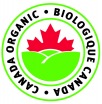
Products represented as organic must be certified in accordance with the National Standards for Organic Agriculture by a Canadian Food Inspection Agency (CFIA) accredited certification body.Products certified as organic meet the production guidelines of the standards. The organic standards outlines the principles of sound organic production systems using sustainable management practices which avoid damage to the environment and are aimed at ensuring the ethical treatment of livestock.

Canada Organic Regime is the Government of Canada's response to requests by the organic sector and consumers to develop a regulated system for organic agricultural products. The label is the assurance that the product bearing it has met the Canadian government's regulatory requirements for organic products. The regulations came into effect on June 30, 2009.

COSMEBIO® is the world’s leading Association dedicated to natural, ecological and organic cosmetics. Created in France in 2002, it now groups about 400 companies that represent 500 brands and offer over 9,200 certified products. The COSMEBIO® Charter advocates cosmetics that respect people and the environment, and are produced using ingredients of natural origin - mainly derived from organic farming - as well as clean manufacturing processes.

The Cradle to Cradle Certified™ Product Standard, administered by the Cradle to Cradle Products Innovation Institute, provides a continuous improvement pathway toward the development of safe and recyclable products. Product certification is available at five different levels (Basic, Bronze, Silver, Gold, and Platinum), with each higher level addressing a more rigorous set of requirements.
Demeter is the brand for products from Biodynamic Agriculture. Without a gap, through every step, from agricultural production to processing and final product packaging, regulating not only to exclude the use of synthetic fertilisers and chemical plant protection agents in agricultural crop production, or artificial additives during processing, but also requiring very specific measures to strengthen the life processes in soil and foodstuffs.

ECOCERT, a French certification body mainly devoted to the certification of organic agricultural products, is recognized by government authorities in more than 80 countries. Ecocert has developed extremely demanding standards for organic cosmetics, organic and recycled textiles, ecological cleaning products, organic and fair trade products, ecological green spaces, fertilizers, carbon offset services, spa.

ECOVIN, the German Federal Association for Organic Viticulture, founded in 1985, is the largest national association of organic wineries in Germany. The products of our member wineries, labelled with the ECOVIN trademark guarantee both outstanding quality and organic consequence according to the association’s strict guidelines, which exceed the standards laid down in the EC regulation on Organic Agriculture, and are subject to regular revisions.

The EU Ecolabel is a label of environmental excellence that is awarded to products and services meeting high environmental standards throughout their life-cycle: from raw material extraction, to production, distribution and disposal. Recognised throughout Europe, the criteria have been developed and agreed upon by scientists, NGOs and stakeholders to create a credible and reliable way to make environmentally responsible choices. Customers can rely on the logo because every product and service is checked by independent experts.

The main objective of the EU organic logo is to help consumers identify organic products. Furthermore it gives a visual identity to the organic farming sector. The European legislation provides conditions under which the organic sector can progress in line with production and market developments, thus improving and reinforcing the EU organic farming standards and import and inspection requirements.
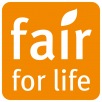
Fair For Life label demonstrates that producers and traders have met the strict criteria of the Fair For Life Programme. They include Social Responsibility and Fair Trade practices checked by a highly experienced external verifier: e.g. a fair and stable price, a premium to invest in projects improving the livelihoods of the communities involved, good and safe working conditions, protecting health and environment.
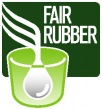
The aim of the Fair Rubber Association is to contribute to an improvement of the working and living conditions of the primary producers of natural latex (rubber) by applying the principles of Fair Trade to the trade in products made from natural rubber.
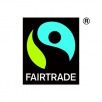
Fairtrade is an alternative to conventional trade, with a partnership between producers, traders, businesses and consumers aiming at making a difference to the livelihoods of farmers and workers around the world through a changed approach to sourcing and purchasing. Fairtrade means that farmers and workers are supported as they improve their lives and communities. A fair price aims to ensure that they can cover their costs of sustainable production.
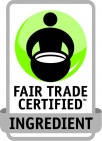
Fair Trade USA is a nonprofit organization that promotes sustainable livelihoods for farmers and workers, protects fragile ecosystems, and builds strong, transparent supply chains through independent, third-party certification. Its trusted Fair Trade Certified™ label signifies that rigorous standards have been met in the production, trade and promotion of Fair Trade products from over 70 countries across the globe.

Fair Wear Foundation is an independent non-profit organization that works with European clothing brands to improve conditions for workers in garment factories. Once a brand becomes a member, it’s committed to implement eight labour standards in the factories where their clothes are being made.
The FairWild Foundation aims to provide a worldwide framework for implementing a sustainable, fair and value-adding management and trading system for wild-collected natural ingredients and products thereof. The FairWild Standard provides guidance on best-practice harvesting and trading of wild-harvested plant (and similar) resources and forms the basis of a third-party audited certification scheme.
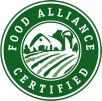
Food Alliance is the most experienced sustainable agriculture certifier in the United States. We have over a decade of experience developing and maintaining comprehensive sustainability standards and criteria for a wide range of agricultural products, including fruits, vegetables, grains, livestock, eggs, dairy, shellfish, mushrooms, grains, legumes, horticultural products, and prepared food products made with Food Alliance Certified ingredients.
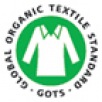
The Global Organic Textile Standard (GOTS) is recognised as the leading processing standard for textiles made from organic fibres worldwide. It defines high level environmental criteria along the entire supply chain of organic textiles and requires compliance with social criteria as well. Compliance is ensured through independent certification.
Hong Kong Organic Resource Centre (HKORC) is the leading organic certification agent in Hong Kong with the devotion in increasing the awareness of farmers, consumers and the general public about the role of certification in the production and marketing of organic products and in promoting the sustainable development of organic farming in Hong Kong so as to ensure a safe and quality food supply and an ecologically balanced living environment for our future generations.
It is the only independent incorporated third party organic certification agent in Hong Kong and its certification system has been accredited by the International Federation of Organic Agriculture Movements (IFOAM) and ISO 17065 in 2012.
It is the only independent incorporated third party organic certification agent in Hong Kong and its certification system has been accredited by the International Federation of Organic Agriculture Movements (IFOAM) and ISO 17065 in 2012.
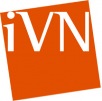
The International Association of Natural Textile Industry (IVN) is an organization which raises awareness for eco-friendly textiles among consumers, press and retail trade. IVN defines sustainable socially accountable business practices by offering consulting services, guidance and quality seals to its members and to consumers. These seals meet internationally valid production standards for eco-friendly textiles (NATURTEXTIL BEST) and eco-friendly leather products (NATURTEXTIL LEDER). IVN’s core competence is a deep technical and practical know-how of the entire sustainable textile production chain.

NASAA supports the education of industry and consumers on organic, biodynamic and sustainable agricultural practices. Through its certification arm, NASAA Certified Organic (NCO), NASAA is Australia’s leading national, and internationally oriented, organic certifier. With operations in Australia and overseas, NCO provides certification and inspection services which assist in facilitating market access throughout the world for NASAA certified organic product.
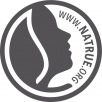
NATRUE is the International Natural and Organic Cosmetics Association and promotes authentic natural and organic cosmetics since October 2007. The NATRUE Label can be achieved in 3 levels: Natural Cosmetics, Natural Cosmetics with Organic Portion and Organic Cosmetics. To date there are more than 3800 NATRUE Certified products on the market.

Naturland promotes organic farming worldwide. Currently over 40,000 farmers manage an area of some 250,000 hectares. Naturland Farmers and processors work according to the highest organic standards. In addition to that the Naturland certification comprises social standards. Naturland certifies not only agricultural produce, but also seafood products as well as non-food products such as textiles and wood.
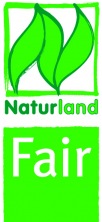
Naturland Fair is a one-stop certification of organic, social and fair trade standards. The logo demonstrates that producers, processors and traders have met the strict organic, social and fair trade criteria. The Naturland Fair standards were developed in close cooperation with the major German Fair Trade organizations and consider the entire value chain. They include social responsibility, reliable trade relationships and fair prices.

NPA developed its Natural Standard with a recognizable seal to help consumers make choices and identify that a product is truly “natural.” Personal and home care products certified under the NPA Natural Standard must contain at least 95 percent natural ingredients, derived from a renewable resource found in nature (flora, fauna, mineral), and must not contain any petroleum compounds.

The Rainforest Alliance CertifiedTM seal assures consumers that the product they are purchasing has been grown and harvested using environmentally and socially responsible practices. Farms and forestlands that meet the rigorous, third-party standards of the Sustainable Agriculture Network (SAN) or the Forest Stewardship Council (FSC) are awarded Rainforest Alliance certification.

The OEKO-TEX® Standard 100plus identifies textiles which were tested for possible harmful substances and produced exclusively in environmentally friendly and socially responsible manufacturing facilities. The prerequisite is the proof that the entire production chain – i.e. all companies involved in the production of a certain end product – meets the requirements of the OEKO-TEX® STeP certification without exceptions.
Founded in 1997 as a nonprofit organization, the Organic Materials Review Institute (OMRI) provides organic certifiers, growers, processors, and suppliers an independent review of products intended for use in certified organic production, handling, and processing under U.S. and Canadian organic standards. Allowed products appear on the OMRI Products List© or OMRI Canada Products List©. OMRI also provides technical support and training about the material review process and standards for organic professionals around the world.
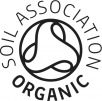
SA Certification is the UK’s leading organic certification body, and is wholly-owned by the Soil Association, a charity campaigning for ethical and sustainable food production. We believe that everyone has a right to good nutritional food which isn’t harmful to them or the environment. We offer certification to a range of schemes, including food certification, GOTS for organic textiles, and COSMOS for organic and natural cosmetics, and we carry out inspections for Fairtrade.
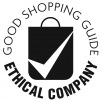
The Ethical Company Organisation offers independent Ethical Accreditation to companies that pass their full ethicality audit. 15 different ethical criteria, under the main headings of Environment, Animals and People. Only those companies which reach the ‘ethical benchmark’ within the research are eligible for Ethical Accreditation membership.

The International Vegan Trademark registers that The Vegan Society has been supplied with evidence that a product meets the registration criteria, which includes products and production processes being free from animal products, by-products and derivatives; free from animal testing, and free from GMOs that involved animal genes or animal-derived substances.
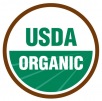
Organic is a labeling term that indicates that products have been produced through approved methods that integrate cultural, biological, and mechanical practices that foster cycling of resources, promote ecological balance, and conserve biodiversity. Synthetic fertilizers, sewage sludge, irradiation, and genetic engineering may not be used. If you see the USDA organic seal, the product is certified organic and has 95 percent or more organic content.

The purpose of the United States Department of Agriculture's BioPreferred® program is to increase the purchase and use of biobased products. This program has two major initiatives: a preferred procurement initiative for Federal agencies and their contractors and a voluntary labeling initiative for the broad-scale consumer marketing of biobased products.

UTZ Certified is a program and a label for sustainable farming of coffee, cocoa and tea.
Through the UTZ program farmers grow better crops, generate more income and create better opportunities while safeguarding the environment and securing the earth's natural resources.
Through the UTZ program farmers grow better crops, generate more income and create better opportunities while safeguarding the environment and securing the earth's natural resources.
The 4C Association is the platform that brings together stakeholders in the coffee sector to address sustainability issues in a pre-competitive manner. It aims to unite all relevant coffee stakeholders in working towards the improvement of the economic, social and environmental conditions of coffee production and processing to build a thriving, sustainable sector for generations to come.

